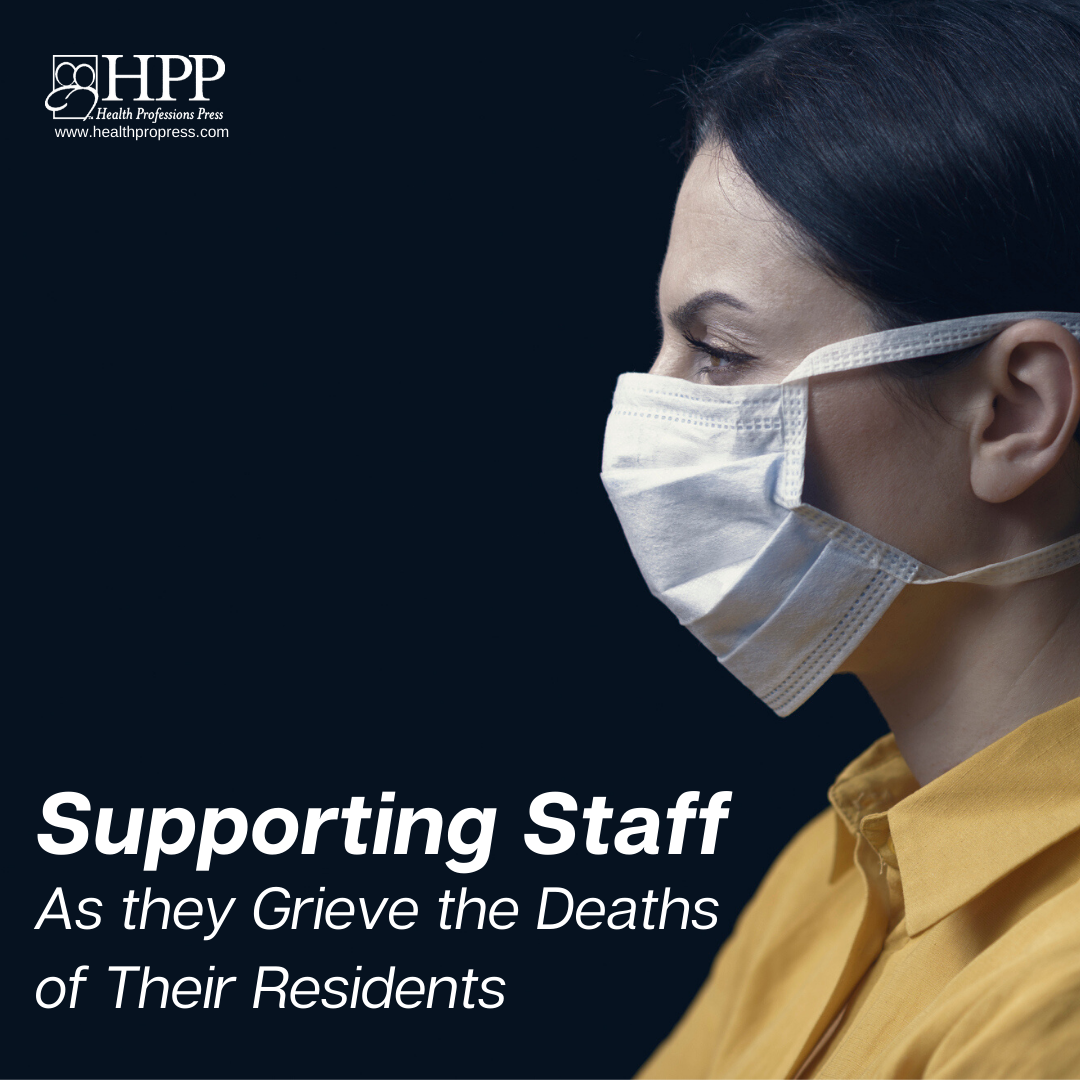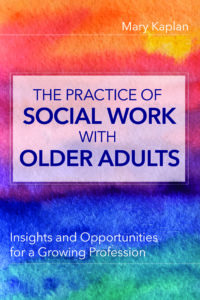
By Mary Kaplan, M.S.W., LCSW
Although death, dying, and grief are day-to-day experiences in the working lives of long-term care staff, the recent surge in the numbers of residents in these settings dying from COVID-19 has led to a cumulative burden of ongoing grief. The emotional impact of each loss for these caregivers is compounded by their own risk for contracting and spreading the virus and the lack of organizational attention to their emotional needs.
Approximately 40 percent of U.S. deaths from COVID-19 have occurred in nursing homes and other long-term care facilities, a statistic that represents over 40,000 residents. Known to be particularly lethal to older adults with underlying health conditions, the virus spreads easily through congregate facilities, where many people live and are cared for in a confined area.
Staff who provide direct care and assistance to residents and their families are often overlooked when it comes to recognizing and addressing their own grief and bereavement experiences. In my role as a consultant and educator in long-term care settings, I provided in-service sessions to address some of the emotional challenges of staff caregiving responsibilities.
Many of the staff expressed frustration that, while attention was focused on helping residents and families cope with the death of their friends and relatives, little or no attention was paid to the feelings of loss and grief felt by the staff who had cared for them, sometimes for months and years. Instead, staff members were expected to come to work the next day and resume their caregiving responsibilities as if nothing had happened.
To address the grief support needs of long-term care staff, those in leadership roles should promote the opportunity for caregivers to grieve for the loss of their residents. Below are some policies and practices that can help.
- Acknowledge grief reactions and the impact that they may have on staff in the development of policies and procedures.
- Create support groups for staff to help them manage stress and cope with grief. Mental health professionals should facilitate these groups, with the understanding that the information shared by group members is confidential and not to be shared outside the group. Information should also be made available about resources to contact if further support or counseling is needed.
- Provide staff in-service education to prepare caregivers for managing the emotional experience of having a resident die. Grief and bereavement information can also be posted on the nurses’ stations and in staff areas.
- When a death occurs, encourage the resident’s family to communicate directly with the caregiver. Since infection-control protocols for COVID-19 prevent in-person contact between facility staff and residents’ family members, arrange virtual meetings and conversations to provide the opportunity for families to thank the caregivers for their care. In these meetings, caregivers can also share their memories and stories of the resident; this sharing can provide valuable comfort and closure for both the caregiver and family.
About the Author
Mary Kaplan, M.S.W., LCSW, is a licensed clinical social worker who has worked in healthcare and geriatrics for over 40 years as a clinician, administrator, educator, and community activist. She is retired from the University of South Florida School of Aging Studies, where she was the Director of the Student Internship Program and taught courses on mental health and aging, geriatric care management, and Alzheimer’s disease. She is the author of five books, including The Practice of Social Work with Older Adults: Insights and Opportunities for a Growing Profession.
Read the book!
 The Practice of Social Work with Older Adults
The Practice of Social Work with Older Adults
Insights and Opportunities for a Growing Profession
By Mary Kaplan, M.S.W., LCSW
Copyright © 2020 by Health Professions Press, Inc.
With the rapid growth of the aging population, the need for geriatric social workers is at an all-time high. This resource for students and practitioners addresses the critical demand head-on by illuminating the many rewards, challenges, and opportunities for social workers to provide counseling, care management, and support to older adults. Written from a practice perspective by a geriatric social worker with a long and varied career in the field, this text illustrates strategies and interventions that move theory into real-world social work settings.
